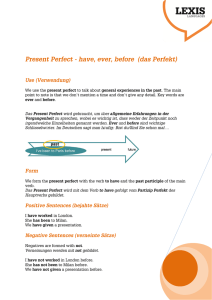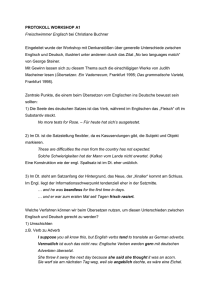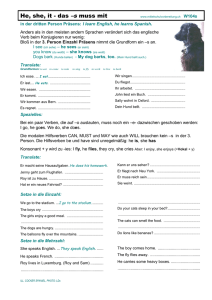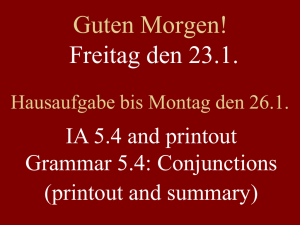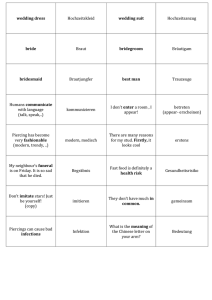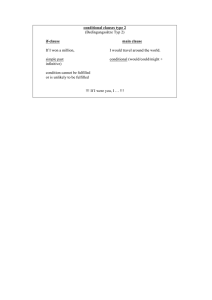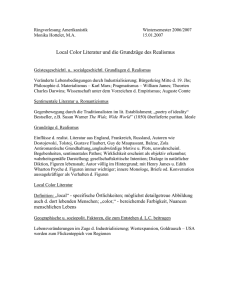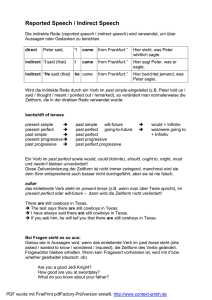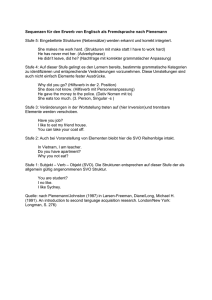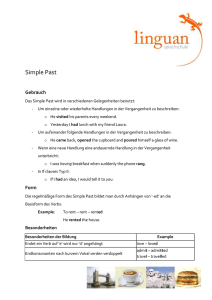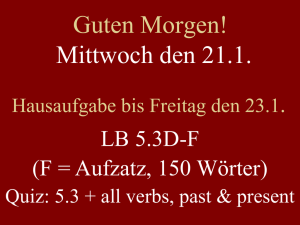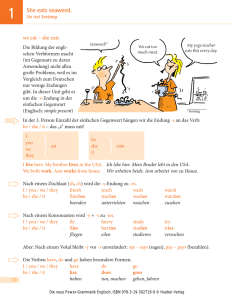Reported Speech
Werbung
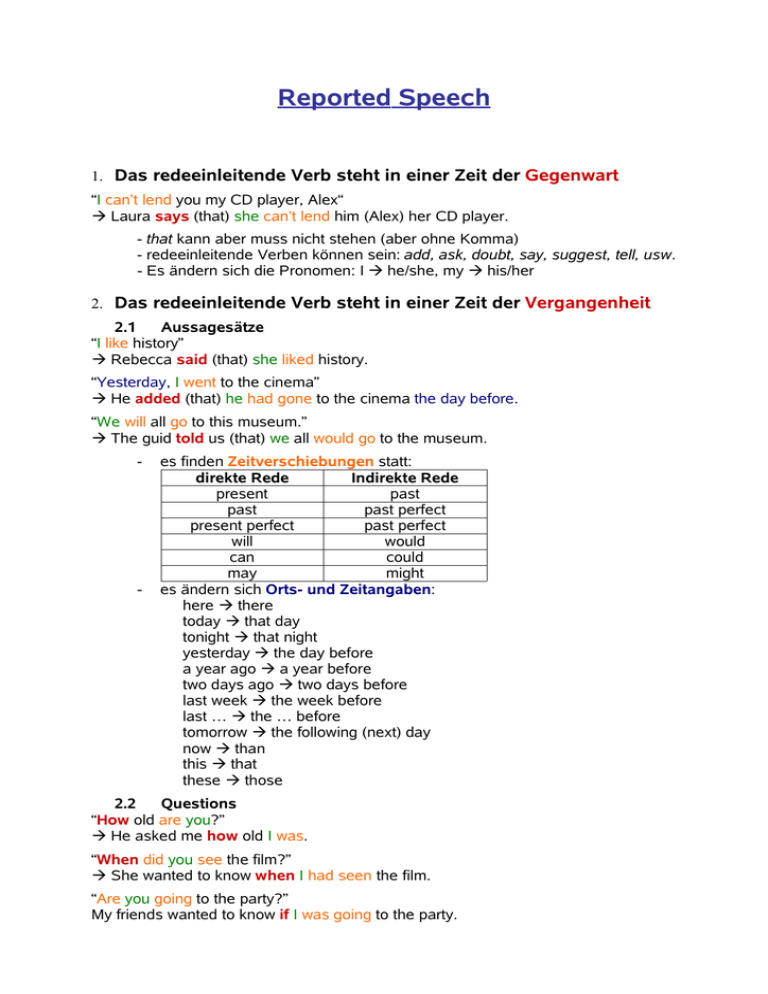
Reported Speech 1. Das redeeinleitende Verb steht in einer Zeit der Gegenwart “I can’t lend you my CD player, Alex“ Laura says (that) she can’t lend him (Alex) her CD player. - that kann aber muss nicht stehen (aber ohne Komma) - redeeinleitende Verben können sein: add, ask, doubt, say, suggest, tell, usw. - Es ändern sich die Pronomen: I he/she, my his/her 2. Das redeeinleitende Verb steht in einer Zeit der Vergangenheit 2.1 Aussagesätze “I like history” Rebecca said (that) she liked history. “Yesterday, I went to the cinema” He added (that) he had gone to the cinema the day before. “We will all go to this museum.” The guid told us (that) we all would go to the museum. - - es finden Zeitverschiebungen statt: direkte Rede Indirekte Rede present past past past perfect present perfect past perfect will would can could may might es ändern sich Orts- und Zeitangaben: here there today that day tonight that night yesterday the day before a year ago a year before two days ago two days before last week the week before last … the … before tomorrow the following (next) day now than this that these those 2.2 Questions “How old are you?” He asked me how old I was. “When did you see the film?” She wanted to know when I had seen the film. “Are you going to the party?” My friends wanted to know if I was going to the party. - Fragewort (wenn vorhanden) bleibt Umschreibungen mit do (does, did) fallen weg; sie drücken nur die Zeitform aus (aber nicht bei Aussagesätzen!!) bei Entscheidungsfragen if oder wether einfügen Wortstellung ändert sich von (direkt) Hilfsverb – Subjekt – Vollverb zu (indirekt) Subjekt – (Hilfsverb -) Vollverb 2.3 Commands and requests (Aufforderungen, Bitten) “Tidy up your room!” My mum wanted me to tidy up my room. “Don’t take my CDs!” My brother warned me not to take his CDs. - bei Aufforderungen folgt der to-infinitive, egal in was für einer Zeitform das redeeinleitende Verb steht - Selten werden Aufforderungssätze durch einen that-Satz mit should wiedergegeben „Let’s start our trip now.“ He said that we should start our trip than. Ergänzungen: jmd. um etw. bitten wanted sb. to do sth. nur bei Fragen fällt do weg! She said (to me) … that she would be late Auf say kann ein indirektes Objekt folgen. Es muss dann mit to angeschlossen werden. She told me … that she would be late Auf tell muss ein indirektes Objekt folgen. Es wird ohne to angeschlossen.
